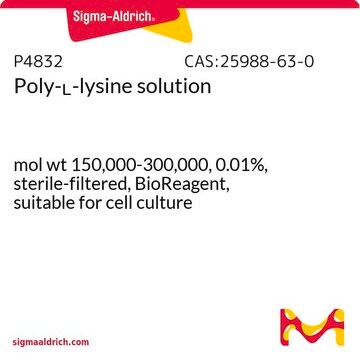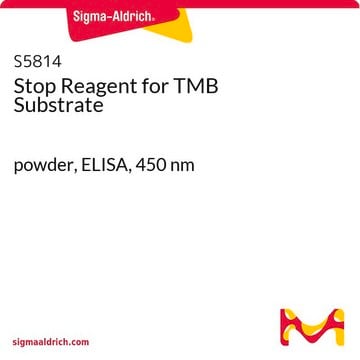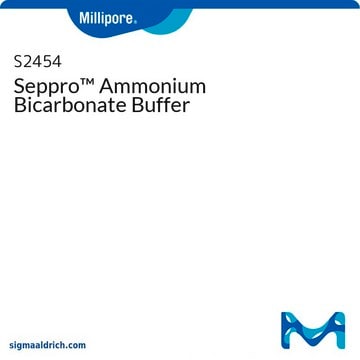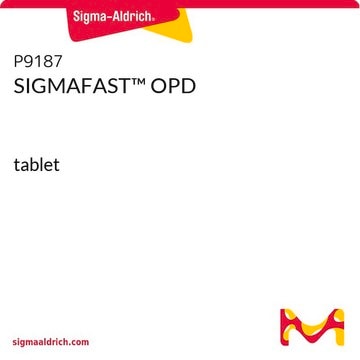T5569
3,3′,5,5′-Tetramethylbenzidine
peroxidase substrate, chromogenic, liquid
Synonym(s):
TMB substrate for ELISA (Super Slow)
About This Item
Recommended Products
Product Name
3,3′,5,5′-Tetramethylbenzidine Liquid Substrate, Super Slow, for ELISA, peroxidase substrate
form
liquid
shipped in
wet ice
storage temp.
2-8°C
General description
Application
Storage Class Code
12 - Non Combustible Liquids
WGK
WGK 1
Flash Point(F)
Not applicable
Flash Point(C)
Not applicable
Choose from one of the most recent versions:
Certificates of Analysis (COA)
Don't see the Right Version?
If you require a particular version, you can look up a specific certificate by the Lot or Batch number.
Already Own This Product?
Find documentation for the products that you have recently purchased in the Document Library.
Customers Also Viewed
Articles
NBT-BCIP substrate system aids in western blotting and immunohistological staining, producing a blue-purple insoluble end product.
Our team of scientists has experience in all areas of research including Life Science, Material Science, Chemical Synthesis, Chromatography, Analytical and many others.
Contact Technical Service











